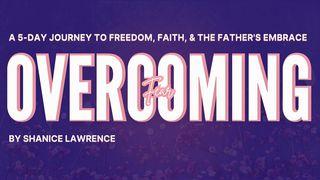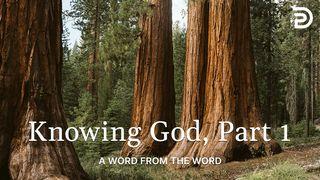Delve Into The ProphetsSample

DAY 22 – JONAH
The book of Jonah is unlike the other prophetic books: it tells a story about a prophet, rather than presenting a collection of his oracles. In the whole book there’s only one sentence of prophecy, which Jonah speaks within the story: Forty more days and Nineveh will be overthrown. The book of Jonah tells the story in order to raise a question. The story is, in effect, told twice, so that by the end the reader isn’t able to escape the answer to the question.
The book relates how the “word of the Lord” came to Jonah, a prophet who lived during the reign of Jeroboam II (783–743 BC). The Lord told him to go to the city of Nineveh and call its people to repentance. This city was the capital of the Assyrian Empire, which would soon threaten the very existence of Jonah’s nation, Israel. And so he was much more inclined to see it destroyed for its wickedness than to help it be spared. He boarded a ship and fled in the opposite direction. God sent a storm to intercept him, and this put the ship’s entire crew in danger.
They didn’t know the true God, and so they called unsuccessfully on their own gods for deliverance. The captain ordered Jonah, “Get up and call on your god! Maybe he will take notice of us so that we will not perish.” Jonah finally had to admit to everyone on the boat, “It is my fault that this great storm has come upon you.” He told the crew to throw him into the sea, and when, very reluctantly, they finally did, the storm stopped. When they saw this miracle, the sailors worshiped the true God. The book says that God “provided” a fish to swallow Jonah, and that when the prophet realized that inside the fish he was at least safe from drowning, he sang a song of thanksgiving. After three days, the fish spit Jonah up onto dry land.
At this point, the story starts over again. It tells how the “word of the Lord” came to Jonah a second time, and how he took another journey, this one toward Nineveh instead of away from it. The book relates that when he announced that God was about to overthrow the city, the king and nobles called for fasting and mourning, saying, “God may yet relent and with compassion turn from his fierce anger so that we will not perish.” Thus, once again, those who were not serving the true God came to acknowledge him as the one who could intervene in their destinies. Once again, the danger passed, as God showed compassion on the repentant Ninevites. And once again, Jonah addressed himself to God, but this time not in thanksgiving, but in complaint. He resented the way he’d had to help preserve a nation that could destroy his own. The book says that God “provided” a leafy plant to shelter Jonah from the sun, and then “provided” a worm to kill the plant, and then “provided” a scorching wind to intensify the heat. When Jonah complained how distressed he was over the loss of the plant, God asked whether he himself wasn’t right to have been distressed over the potential destruction of a great city and all its inhabitants. The book ends with that question.
PRAYER: Thank You, Lord for Your great mercy.
Scripture
About this Plan

The Old Testament of the Bible is broken into three major sections, the second of which is known as the Prophets. If you didn’t know that, imagine all of the other interesting things you’ll learn in this reading plan as you explore the purpose, context, and background of this fascinating and unique part of God’s Word.
More
We would like to thank Biblica for providing this plan. For more information, please visit: http://www.biblica.com
Related Plans

Imposter Syndrome: You Are Who God Says You Are

From Need to Maturity

The Generosity Practice

Grace for Your Pace - How to Burn on Instead of Burn Out

Ruth: A Redeemer Who Fills All Emptiness | Video Devotional

An Encounter With Jesus

Parenting Through God’s Lens: Seeing Your Child the Way God Does

Rest for the Soul: 8 Days With Jesus

Overcoming Fear: A 5-Day Journey to Freedom, Faith, and the Father’s Embrace
